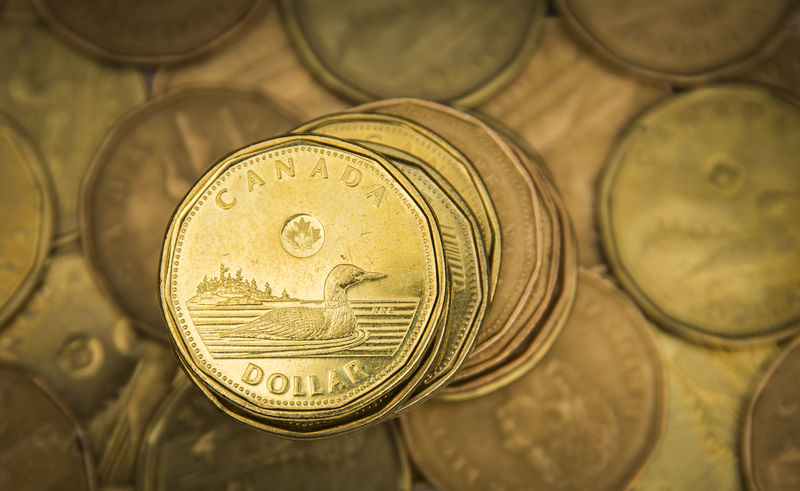By Fergal Smith
TORONTO (Reuters) - The Canadian dollar will gain ground against its U.S. counterpart over the coming year, supported by strengthening of the domestic economy and a narrower gap between Canadian and U.S. interest rates, a Reuters poll predicted.
Friday's poll of nearly 50 currency analysts showed they expect the Canadian dollar to strengthen 1% to 1.32 per U.S. dollar, or 75.76 U.S. cents, in one month from about 1.33 on Thursday.
The loonie is then expected to gain further to 1.3058 in 12 months, which is about the same level as the median projection in September's survey.
Scotiabank is pinning its forecast "on the fundamentals pulling through and from that perspective we do expect a modest appreciation in the CAD over the medium term," said Shaun Osborne, chief currency strategist at the bank. "We think that the CAD is undervalued at these levels."
The loonie is trading at less than its potential valuation because of an uncertain outlook for global trade, Osborne said.
Canada is more dependent than some other countries, such as the United States, on trade. At C$1.5 trillion, trade of goods and services, including oil and motor vehicles, accounted for 66% of Canada's economy in 2018, according to government data.
Still, the Canadian dollar and the Japanese yen have been the only G10 currencies to gain ground this year against the U.S. dollar, with the loonie up more than 2%.
Canada's economy expanded at an annualized rate of 3.7% in the second quarter, while the economy has been adding jobs this year at a robust pace and inflation is close to the Bank of Canada's target of 2%.
This week, Canada's two-year Treasury yield climbed above its U.S. equivalent for the first time in nearly two years, having traded as much as 84 basis points below in March.
The Bank of Canada has been concerned that trade conflicts are weighing more heavily on the global economy. But the central bank has shown no appetite for cutting interest rates despite easing this year by some global peers, including the Federal Reserve and the European Central Bank.
Money markets see about a 40% chance of an interest rate cut by December, down from about 90% one month ago.
The economic data "suggests that the BoC can buck the dovish tone from other global central banks and keep rates on hold for now," said George Davis, chief technical strategist at RBC Capital Markets. "We expect this policy divergence to provide the scope for some CAD appreciation in Q4."

(Other stories from the global foreign exchange poll:)